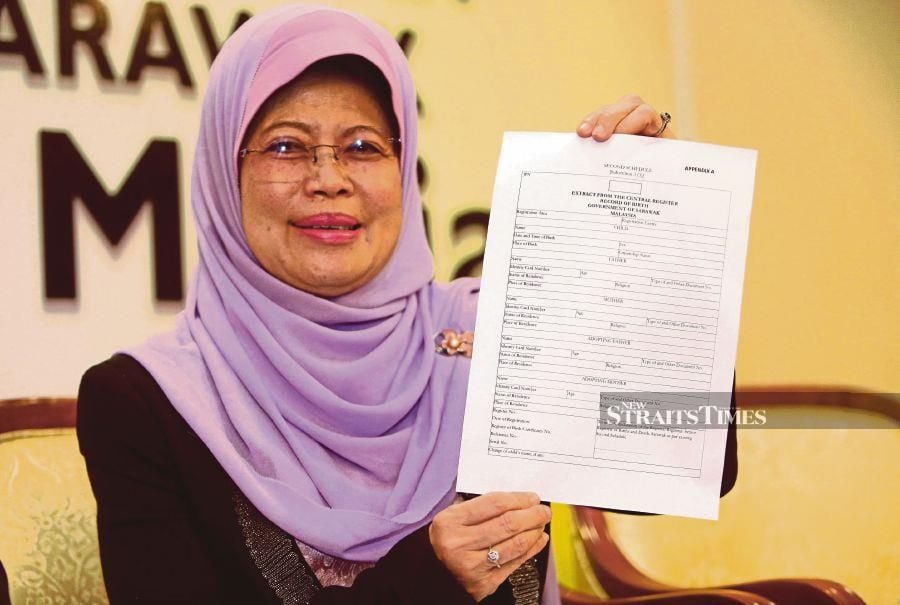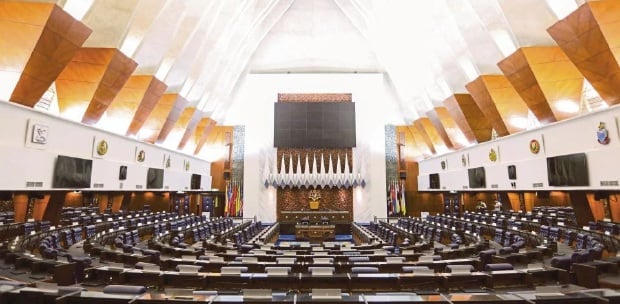SARAWAK Women, Childhood and Community Wellbeing Development Minister Datuk Seri Fatimah Abdullah has her hands full running her multi-faceted ministry, and yet, every so often, she is in the news with relieved parents and children sharing happy stories about something most Malaysians take for granted: citizenship.
Some individuals living in Sarawak can spend as long as decades pursuing precious citizenship papers, without which rights like enrolling in schools, getting treatment at public clinics or getting a job, may be difficult if not impossible.
Most of them fell through bureaucratic cracks for one reason or another. There is even no guarantee that if one sibling succeeds in gaining citizenship papers, other blood siblings will automatically get theirs.
For those caught in such predicaments, negotiating the bewildering bureaucratic maze must be nerve-wrecking; more so for those from inaccessible recesses of Sarawak.
Lawyers sometimes are hired by parents to battle the bureaucracy to bolster particularly challenging cases.
It is little wonder that Fatimah often had to be roped in to pursue cases all the way to the very top of the federal bureaucratic chain handling citizenship matters.
Why this is the case is perplexing, to say the least. Granted, citizenship is no trifling matter.
But, surely, there is a case to smoothen things out, simplify procedures and, generally, not leave the preponderant burden on affected individuals to prove their right to citizenship, where evidence may point to some honest lapses in acquiring the right papers at the right time?
But instead of hopes of stateless people facing more streamlined and less onerous bureaucratic hurdles to acquiring citizenship, are such hopes about to be extinguished with the proposed constitutional amendments to tighten laws related to citizenship?
In light of these developments, it was again left to the Sarawak minister to plead the case for stateless children under the care of the Welfare Department.
Citing the difficulties of her officers to determine the biological parents of abandoned children under their care, Fatimah said that "through the Special Committee for Citizenship under Article 15A of the Federal Constitution, we request that the children under the care of welfare institutions, especially those from cases like baby dumping, be given special consideration" for citizenship application.
Parents intending to adopt such children, she stressed, "should not need to bear the burden" of regularising the children's citizenship status.
Sarawak is the nation's largest state, with the longest land border with Indonesia's Kalimantan.
Yet it has by and large managed to control that border that there are few cases of uncontrolled entry of illegal migrants.
Stateless people in the state, therefore, do not constitute any statistically significant number.
For this reputation of ensuring its borders are not porous to illegal migrants, Sarawak does not deserve to have its residents be treated as anything less than bona fide citizens.
Even at the larger national level, fair questions must be asked if residents — particularly abandoned children — need to prove they are citizens when any fault must surely lay at the feet of those in charge of border controls or the lack thereof.
Quite apart from the potential of stateless children growing to become a significant social menace in our midst, our international reputation as a humane and decent society may be at stake if the state shuns its responsibility to resolve this issue by way of some constitutional sleight.
The writer views developments in the nation, region and wider world from his vantage point in Kuching






